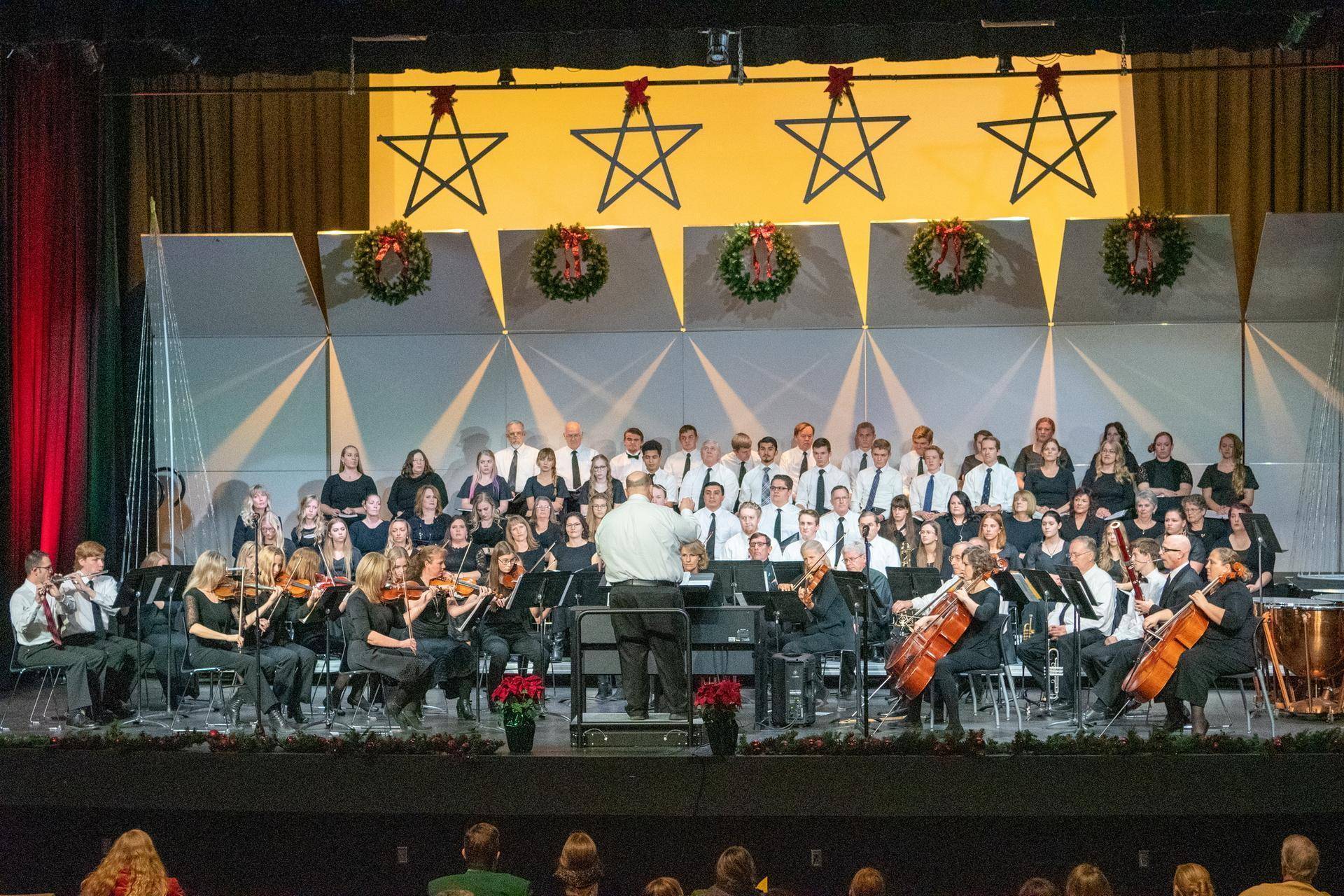By Liz Bryner
This season marks the 73rd annual production of Handel’s sacred oratorio “Messiah” in Castle Country, Utah. This is the 20th year I have sung alongside local musicians, but many others have participated much longer than I have, even spanning multiple generations. If you have not yet attended this free performance, you have been missing out on one of the great traditions of Eastern Utah.
Under the skilled conductor’s baton of USU Eastern’s choral director Larry Martin and with the unparalleled professionalism of piano faculty member Elise Tuttle, the quality of the production exceeds all expectations from our small community. If you are new to classical music or new to sacred oratorios, “Messiah” offers a great entry point. Each aria, recitative, chorus, or orchestral suite has a memorable melody and rings with familiarity. The work also spans the gamut of emotional experience and religious worship from tender to tragic and from the sublime to the exultant. The drama of “Messiah” provides appeal for believer and nonbeliever alike.
Local instrumentalists and singers have been rehearsing since September and are eagerly anticipating the performance this Sunday, Dec. 3, which will take place at the Carbon High School auditorium at 7:30 p.m. It takes a lot of work to pull off this performance: almost 100 musicians dedicate dozens of hours, or collectively, thousands of hours, to learn, rehearse, and polish favorite selections from Handel’s oratorio.
And why do we do it? One must attend a concert to fully appreciate the genius, power, and beauty of this sacred work, but its merits can be established through a cursory overview of how the oratorio came to be and a brief summary of its impact on the world in the 282 years since it was written.
George Frideric Handel, a German composer, lived out most of his prolific career of composing, producing and performing his own music in England. I have been to his house on Brook Street in London where he composed the entire score of 260 manuscript pages in just 24 days, all in a dimly lit room. I have also been to the British Library and seen the autographed manuscript of the musical score in his own hand under glass with the same respect as prized documents like the Magna Carta, the Guttenberg Bible, and original works of Shakespeare.
Handel’s 42 operas, 25 oratorios and almost countless other works speak for themselves as to his genius. But why is “Messiah” Handel‘s most famous work, and more specifically, why is the Hallelujah Chorus most famous of all? Handel is reported to have said “Whether I was in my body or out of my body as I wrote [the Hallelujah Chorus], I know not. God knows.”
It was 280 years ago when King George II made a surprise appearance for the London debut. When he stood up during the Hallelujah Chorus, everyone else in the audience was required to stand, and thus a tradition was born of standing during the revered chorus. Local audiences have been standing during this chorus for the past 73 years out of tradition and out of reverent respect.
Although most renderings of this timeless masterpiece are performed in the season of Advent, the original debut was performed during the Holy Week of Easter in Dublin Ireland as a benefit concert. The packed audience raved about it. One attendee of the debut performance said the music “conspired to transport and charm the ravished heart and ear.” Another said, “The whole is beyond anything I had a notion of til I read and heard it. It seems to be a species of music different from any other.”
The Dublin performance not only benefited charities to the tune of 400 pounds (almost $900,000 USD in today’s U.S. currency), but it restored Handel’s career, brought redemption to a soloist whose life had been embroiled in scandal, and brought hope to a weary world. In the subsequent 281 years since its debut, it has become one of the most well known and frequently performed works of Western music, and has raised countless dollars for charities.
So, why do local community members come together each fall to rehearse and prepare to perform Handel’s “Messiah?” The answer will be unique for each participant, but the universal current running through all answers will likely be that it brings hope to their own hearts, with the potential to carry and deliver that same hope to all who attend.
Each of you who reads this article is cordially invited to attend this year’s performance and be a part of local and international living history unfolding before your eyes and ears, and to witness the enigma and majesty of the sacred oratorio, “Messiah.”

